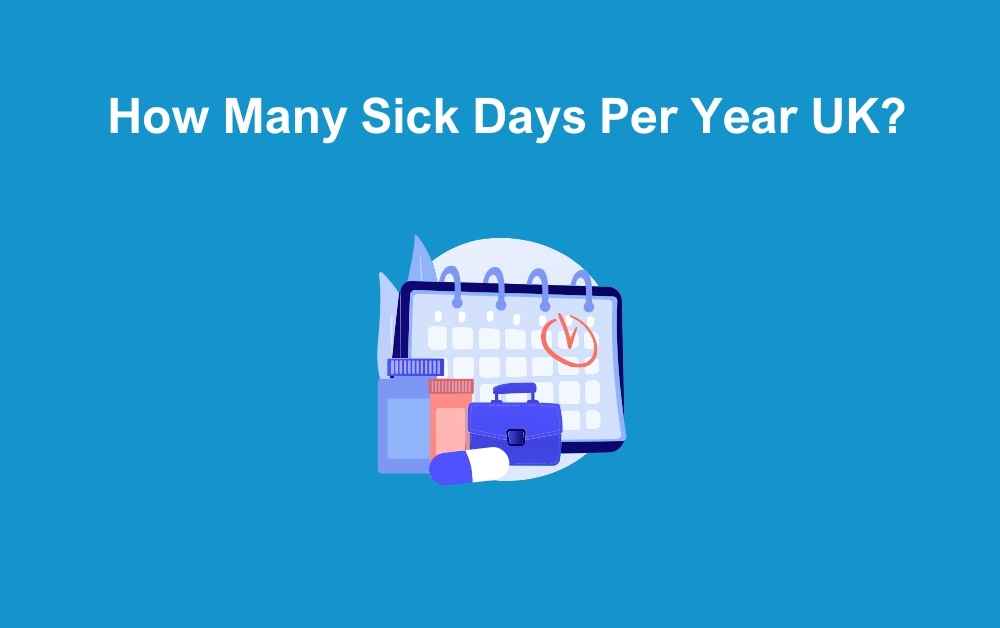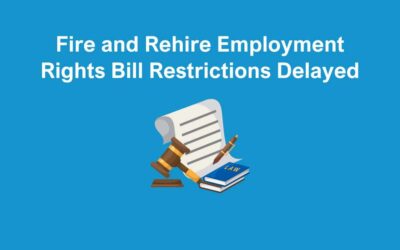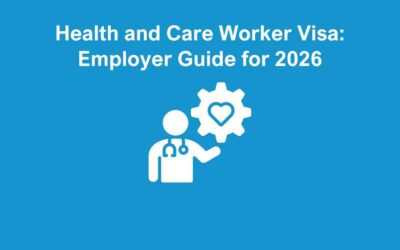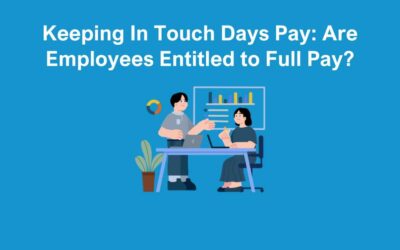One of the common topics we are asked about is around absence management and how many sick days per year an employee can take in the UK. While there isn’t a fixed number of sick days allowed by law, there are clear guidelines on Statutory Sick Pay (SSP) and best practices for managing employee attendance. For employers, managing absence effectively and improving attendance rates are key to maintaining productivity and a positive workplace culture.
Jump to a Section:
How Many Sick Days Per Year in the UK?
In the UK, there is no legal limit on the number of sick days an employee can take, but the government does provide guidelines on Statutory Sick Pay (SSP) and absentee policies. The average UK worker had 5.7 sick days in 2022. Here are the key points you need to know:
- No legal cap: There is no set number of sick days that UK employees are allowed to take.
- Average sick days: Employees take an average of 5.7 sick days annually.
- Statutory Sick Pay (SSP): Employees can claim SSP for up to 28 weeks if they are unable to work due to illness.
- Long-term sick leave: If an employee is off sick for a long period, you may need to manage their absence carefully through company policies.
- Employer responsibilities: Employers should establish clear attendance policies, conduct return-to-work interviews, and follow a consistent approach to sick leave.
The most common reasons for sickness absence include:
- Minor illnesses (colds, flu, stomach bugs) make up around 29.3% of absences.
- Mental health issues such as stress, anxiety, and depression are also a significant factor, accounting for around 7.9% of absences.
- Musculoskeletal problems like back and joint pain contribute to around 10.5% of sick leave.
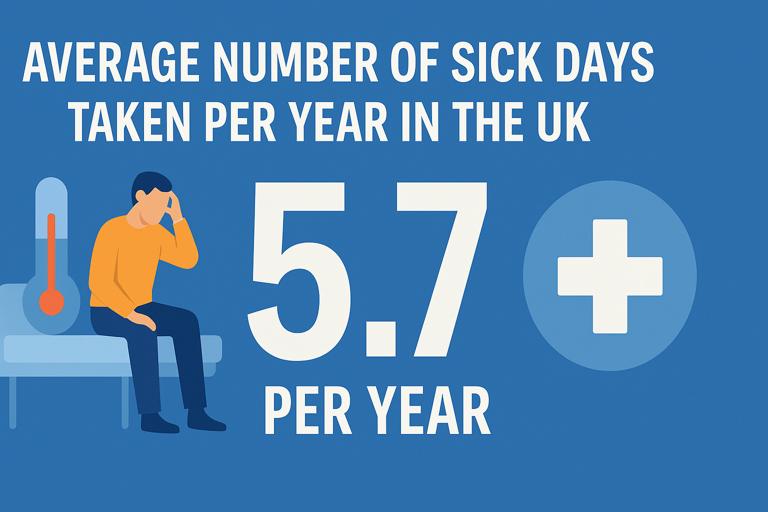
Managing Long-term Absence
While the law does not cap the number of sick days, employers may grow concerned if an employee’s absences become frequent or prolonged. In such cases, employers may initiate a sickness absence review to better understand the situation and provide support where needed. Furthermore, this could involve consulting with an occupational health advisor, requesting fit notes from a GP, or considering reasonable adjustments to help the employee return to work.
In addition, If you are currently dealing with long-term sickness in your business, you can read our guide on managing employees with long-term sickness.
Statutory Sick Pay (SSP) in the UK
Statutory Sick Pay can be claimed for up to 28 weeks, with the current rate set at £118.75 per week (as of April 2025). It is paid in the same way as wages and also for the days an employee normally works.
SSP is available to employees who:
- Are classified as employees and have done some work for their employer
- Are ill for more than 3 days in a row (including non-working days)
- Earn an average of at least £125 per week
However, many employers offer enhanced sick pay schemes that go beyond SSP. These may provide full or partial pay for a set number of days each year, which are typically outlined in the employee’s contract or company handbook. These enhanced policies can vary widely from employer to employer. If you would like help to create an enhanced sick pay policy, our HR Consultants are here to help.
How Employers Can Improve Attendance
Maintaining good attendance rates is crucial for any business. High levels of absenteeism can affect productivity, morale, and overall company performance. Here are some effective strategies employers can use to help reduce sickness absence and improve attendance:
1. Create a Clear Attendance Policy
A well-defined attendance policy sets expectations for both employees and managers. The policy should outline procedures for reporting sickness, when fit notes are required, and how long-term absences will be handled. It’s important to communicate these policies clearly to employees and ensure they understand the consequences of unauthorised absences or excessive sick days.
2. Offer Flexible Working Arrangements
Allowing employees some flexibility in their working hours or offering options for remote work can help reduce the likelihood of sickness absence. Flexible working arrangements can help employees manage minor illnesses, attend medical appointments, or balance their personal responsibilities, reducing the need to take full days off.
3. Promote a Healthy Workplace Culture
Encouraging employees to prioritise their physical and mental health is a proactive approach to reducing absenteeism. Employers can offer initiatives such as:
- Mental health support, including access to counselling services or mental health first aiders
- Healthy lifestyle programmes, such as discounted gym memberships or in-office fitness activities
- Promoting a culture where taking breaks and managing stress are encouraged
A healthy and supportive work environment can help employees feel more engaged and less likely to take time off due to stress-related illnesses.
4. Implement a Return-to-Work Process
Having a structured return-to-work process can help employees reintegrate smoothly after a period of illness. This process might involve a one-to-one meeting to discuss any concerns the employee has about coming back, potential adjustments to their role, or phased returns where the employee gradually increases their working hours.
This not only ensures the employee feels supported but also helps managers identify any underlying issues that could lead to further absences in the future.
Watch our return to work interview video
5. Use Absence Data to Identify Trends
Tracking sickness absence data can help employers identify patterns, such as certain departments or roles with higher-than-average absences. By analysing this data, employers can spot trends and address any workplace issues that might be contributing to sickness, such as high workloads, poor working conditions, or a lack of team support.
6. Support Employee Wellbeing
Investing in employee wellbeing can have a significant impact on attendance rates. Regular health checks, access to occupational health services, or even small gestures like providing healthy snacks can contribute to an employee’s overall health and wellbeing.
For employees struggling with long-term health issues, offering reasonable adjustments such as modified duties or flexible schedules can enable them to continue working while managing their condition.
Watch our video on The Importance of Occupational Health:
Quick Facts: Sick Days in the UK
-
There is no statutory limit on how many sick days an employee can take.
-
The average number of sick days taken per employee in the UK is 5.7 per year.
-
Statutory Sick Pay (SSP) is paid for up to 28 weeks, starting from the 4th consecutive day of illness.
-
Employers should have a clear sickness absence policy and maintain records of sick leave.
-
Medical evidence (e.g. fit notes) is typically required after 7 consecutive days of absence.
Download Our Absence Management eBook
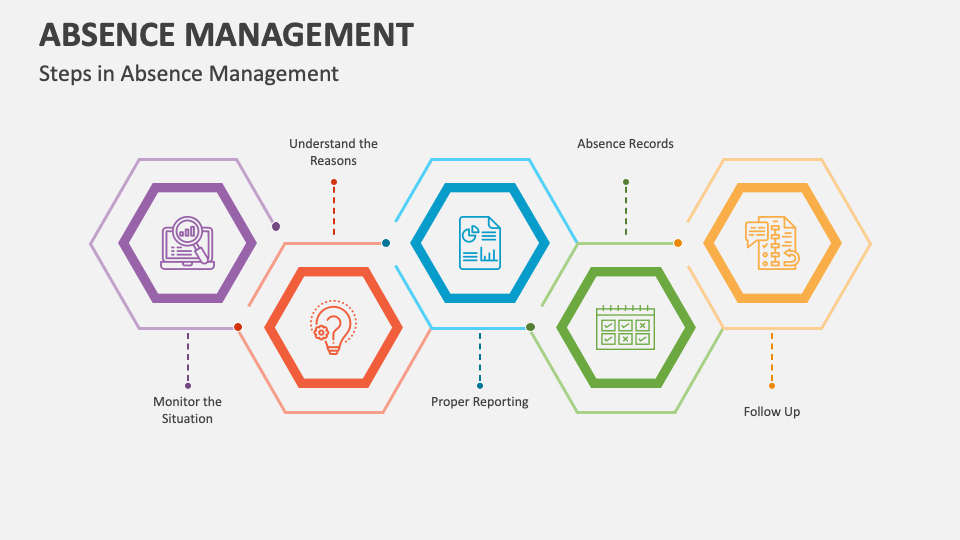
Download your free absence management guide.
Conclusion
In the UK, there is no legal limit on how many sick days per year an employee can take. However, employees are entitled to Statutory Sick Pay (SSP) for up to 28 weeks, and many employers offer enhanced sick pay schemes. While illness is an inevitable part of working life, employers can take proactive steps to improve attendance by promoting a healthy workplace culture, offering flexible working arrangements, and implementing clear policies.
By understanding the balance between supporting employees during illness and promoting attendance, businesses can maintain productivity while ensuring their workforce remains happy and healthy.
Need assistance with managing employee sickness absence? Contact The HR Booth today for expert guidance and support.
Frequently Asked Questions
Q1: How many sick days is normal in the UK?
Most employees in the UK take around 5.7 sick days per year, based on recent data from 2022. This figure can vary depending on sector and job type.
Q2: Is there a legal limit on sick days in the UK?
No, there is no statutory limit to the number of sick days an employee can take. However, absence should be managed in line with a company’s attendance policy.
Q3: When can an employee get Statutory Sick Pay (SSP)?
SSP is available after 4 consecutive days of absence, including non-working days, and is paid for up to 28 weeks.
Q4: Can too many sick days lead to disciplinary action?
Yes, if an employee’s absences are excessive and unsupported by medical evidence, employers can follow a fair capability or disciplinary process.

